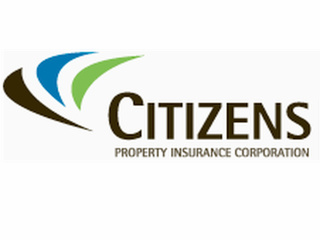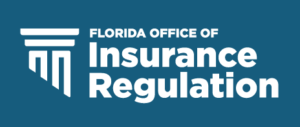Plus, more homeowners market rate cuts
 Citizens Property Insurance says it has submitted to political pressure to write commercial policies that it otherwise wouldn’t, another big Florida property insurance company announces rate cuts, the biggest jump in the Consumer Price Index is automobile insurance, plus Florida’s new insurance premium tax credit goes into effect. It’s all in this week’s Property Insurance News.
Citizens Property Insurance says it has submitted to political pressure to write commercial policies that it otherwise wouldn’t, another big Florida property insurance company announces rate cuts, the biggest jump in the Consumer Price Index is automobile insurance, plus Florida’s new insurance premium tax credit goes into effect. It’s all in this week’s Property Insurance News.
 Citizens Property Insurance: State-backed Citizens commercial lines multi-peril and wind-only policies increased in 2023 by 210% and the building count by 290%, with total insured value of $108.7 billion. Noting that rapid growth at one of its meetings last week, Board Chairman Carlos Beruff said “We’ve got condominium associations with two-, three-, four-hundred members get the people in Tallahassee’s attention, (and) political pressure starts getting put on us to write these uninsurable buildings, because these are well organized condominium associations. Some of them in pretty expensive buildings,” continued Beruff. “And all of a sudden, we’re picking up the pieces. Sounds good when it’s working, but it’s going to clean our clock when it’s not,” he warned fellow Board members and staff. The staff’s solution, approved by the Board, is a Roof Covering Exclusion that would allow a commercial building that is undergoing roof replacement to get a Citizens policy – minus coverage for the roof – until the new roof is installed. As we’ve reported, condo buildings have faced a lack of available and affordable insurance since tougher legislative requirements for condo maintenance were enacted following the Surfside Tower collapse in 2021.
Citizens Property Insurance: State-backed Citizens commercial lines multi-peril and wind-only policies increased in 2023 by 210% and the building count by 290%, with total insured value of $108.7 billion. Noting that rapid growth at one of its meetings last week, Board Chairman Carlos Beruff said “We’ve got condominium associations with two-, three-, four-hundred members get the people in Tallahassee’s attention, (and) political pressure starts getting put on us to write these uninsurable buildings, because these are well organized condominium associations. Some of them in pretty expensive buildings,” continued Beruff. “And all of a sudden, we’re picking up the pieces. Sounds good when it’s working, but it’s going to clean our clock when it’s not,” he warned fellow Board members and staff. The staff’s solution, approved by the Board, is a Roof Covering Exclusion that would allow a commercial building that is undergoing roof replacement to get a Citizens policy – minus coverage for the roof – until the new roof is installed. As we’ve reported, condo buildings have faced a lack of available and affordable insurance since tougher legislative requirements for condo maintenance were enacted following the Surfside Tower collapse in 2021.
In related news, Beruff and at least two other Board members expressed distaste for insuring non-residential commercial buildings and secondary homes. They want a workshop later this summer to review current Citizens’ coverage offerings that may not be state-mandated or could be changed by statute. Meanwhile, Citizens reports its recent reinsurance purchase for this hurricane season has significantly reduced the risk of assessments in future catastrophes with good news as well in the depopulation of Citizens policies back into the private insurance market.
 Homeowners Rate Cuts Growing: Tampa-based American Integrity Insurance is the latest property insurance company to announce it is reducing homeowners rates. Its annual rate filing this month requests a 6.9% decrease for about 55,000 policyholders and a 0% rate change for its remaining 215,000 policyholders. The company credits recent legislative reforms under SB-2A that eliminated Assignment of Benefits (AOB) contracts and one-way attorney fees. As promised, its rates reflect the changes. Eight other Florida-based carriers have received approval to lower rates this year with ten others approved to keep rates flat, following three years of up to double-digit increases in the marketplace.
Homeowners Rate Cuts Growing: Tampa-based American Integrity Insurance is the latest property insurance company to announce it is reducing homeowners rates. Its annual rate filing this month requests a 6.9% decrease for about 55,000 policyholders and a 0% rate change for its remaining 215,000 policyholders. The company credits recent legislative reforms under SB-2A that eliminated Assignment of Benefits (AOB) contracts and one-way attorney fees. As promised, its rates reflect the changes. Eight other Florida-based carriers have received approval to lower rates this year with ten others approved to keep rates flat, following three years of up to double-digit increases in the marketplace.
 Auto Insurance: While homeowners rates start to fall here in Florida, automobile insurance rates are rising. That’s reflected nationally in a big way with some fearing it may become the next property & casualty insurance crisis. The 20.3% increase in auto insurance since 2023 was the largest of any category in the U.S. Consumer Price Index, including food and beverages. PropertyCasualty360 reports one reason is the rise in automobile prices, up about 25% since the start of the pandemic, due to the global computer chip shortage, along with a 36% increase in auto claims severity.
Auto Insurance: While homeowners rates start to fall here in Florida, automobile insurance rates are rising. That’s reflected nationally in a big way with some fearing it may become the next property & casualty insurance crisis. The 20.3% increase in auto insurance since 2023 was the largest of any category in the U.S. Consumer Price Index, including food and beverages. PropertyCasualty360 reports one reason is the rise in automobile prices, up about 25% since the start of the pandemic, due to the global computer chip shortage, along with a 36% increase in auto claims severity.
 Florida Insurance Premium Tax Credit: The Florida Office of Insurance Regulation (OIR) has issued Emergency Rule 69OER24-1 directing how property insurance companies are to issue various tax credits passed by the Florida Legislature this year. It is effective immediately versus what those of us in regulatory land are used to with a 60+ day rulemaking cycle and various public meetings. OIR has posted new form OIR-B1-596, due with quarterly and annual reports, to report the policyholder discounts mandated this past session in amounts equal to the state premium tax and fire marshal assessments. To recover the discounts, insurers will reduce their amounts of premium tax and state fire marshal assessment obligations.
Florida Insurance Premium Tax Credit: The Florida Office of Insurance Regulation (OIR) has issued Emergency Rule 69OER24-1 directing how property insurance companies are to issue various tax credits passed by the Florida Legislature this year. It is effective immediately versus what those of us in regulatory land are used to with a 60+ day rulemaking cycle and various public meetings. OIR has posted new form OIR-B1-596, due with quarterly and annual reports, to report the policyholder discounts mandated this past session in amounts equal to the state premium tax and fire marshal assessments. To recover the discounts, insurers will reduce their amounts of premium tax and state fire marshal assessment obligations.
The new law, codified at Section 624.5108, applies to policies with effective dates between October 1, 2024, and September 30, 2025. The reductions must be separately stated on the declarations page and must be identified as part of the renewal notice for existing policies or the quote for new business. The rule says premium reductions must “be applied to the entirety of the premium due at the effectuation of the policy term.”
The emergency rule specifies the discounts shall be labeled:
- Legislative Premium Tax Discount of 1.75% pursuant to section 5108(1)(a), F.S.
- Legislative Fire Marshall Assessment Discount of 1.00% pursuant to section 5108(1)(b), F.S.
- Legislative Flood Premium Tax Discount of 1.75% pursuant to section 5108(1)(c), F.S.
If a policy includes both dwelling coverage and flood coverage, the premium tax discount applies only once to the policy premium. In this case, the discount can be labeled: “Legislative Premium Discount of 1.75% pursuant to section 624.5108(1)(a), F.S.”
LMA Newsletter of 7-22-24

